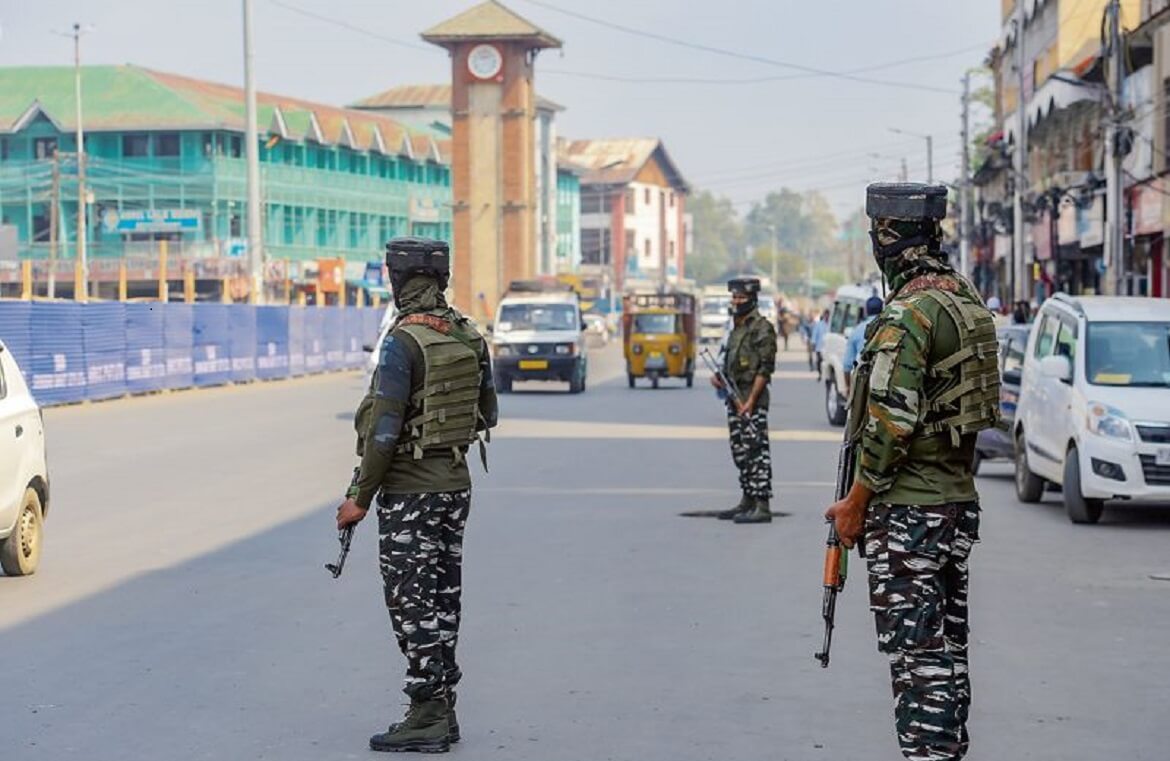Kashmir is one of the most beautiful front lines in the world, a vita of mountains and saffron fields ancient temples and mosques. But this state roughly a size of an Island has seen more years of war and violence then peace. For inception the Kashmir region in the Himalayas has served as a bone of contention between Pakistan and India. The nuclear-armed neighbors, who each claim complete sovereignty over the province that is predominantly inhabited by Muslims, have engaged in three wars over it, since India’s partitioned and the establishment of Pakistan in 1947. It is still one of the world’s most militarized areas today. A portion of its territory is governed by China. There are roughly 10 million people living in Indian-administrated Jammu and Kashmir and 4.5 million in Pakistani-administrated Kashmir, which together make up the historical territory of Kashmir. Beyond the question of whether Kashmir is under the control of India or Pakistan lies a more profound concern the harrowing conditions endured by the Kashmiri people. Beyond the question of whether Kashmir is under the control of India or Pakistan lies a more profound concern the harrowing conditions endured by the Kashmiri people. The situation facing Kashmiris transcends geopolitical boundaries in the face of severe humanitarian violations and widespread violence. Their daily struggles unfold against a backdrop of profound challenges, underscoring the urgent need for attention to the human dimensions of the Kashmir conflict. A sobering array of human rights violations characterize the situation in Indian-occupied Kashmir, which begs for serious reflection. The range of breaches is frightening, ranging from rape, torture, and political repression to mass murders and enforced disappearances. Human Rights Watch reported in 2006 that between 1990 and 2017, at least 20,000 civilian deaths were recorded. There are still disparities in the number of casualties: the Indian government says the insurgency has killed 14,000 civilians, but Pakistani officials say over 100,000 civilians have died in Kashmir, including torture while in detention and general misery. Unquestionably, there is a grave humanitarian catastrophe that requires immediate action from the world community.
A 1994 Jammu and Kashmir report by Human rights Watch highlighted reports of sexual assault by Indian police, military, and intelligence organizations, most of which were connected to “counter-insurgency operations.” According to the report, rape frequently happens during searches and crackdowns, with women becoming victims after militant ambushes when they are suspected of aiding militants. During counter-insurgency operations, security forces use rape as a weapon with the intention of punishing, intimidating, and dehumanizing people. On the other hand, insurgency organizations retaliating against perceived opponents or informers are what lead to sexual abuse against Kashmiri women during counter-terrorist operations. Following the murders of family members, women are frequently abducted and raped. 11,224 occurrences of rape by security forces are reported by “Kashmir Media Service” between 1989 and 2020; however, investigations result in few penalties, frequently merely suspension, and information is kept private.
Leader of the APHC Abdul Hameed Lone has voiced serious worries about the state of the Indian Illegally Occupied Jammu and Kashmir (IIOJK), which is rapidly deteriorating in terms of political and human rights. He disclosed that since 1989, around 8,000 innocent Kashmiris have vanished and gone missing. Lone pointed forth the construction of detention centers in IIOJK, where young people are tortured, by Indian occupation forces and agencies. He emphasized that 7,186 people had died from torture while in captivity, and hundreds of young people had been held without being charged. Mass graves have also been found in IIOJK; it is anticipated that 2,700 anonymous graves in 55 villages across three districts will be recognized. Notably, access to these disappearances has been refused to the UN Working Group on Enforced Disappearances.
The abrogation of Article 370 In August 2019, a constitutional provision that granted special status to Jammu and Kashmir, marked a significant turning point. This action raised worries about demographic shifts and the potential disruption of the area’s delicate equilibrium by dividing the territory into two union territories and placing it under the direct control of the Indian central government. These modifications have had far-reaching effects. The granting of residence certificates to non-natives, such as former military personnel, has sparked concerns about a possible intentional attempt to alter the demographic landscape, which could result in ethnic cleansing and new wars. The political ramifications, which include the arrest of well-known leaders, highlight the suppression of Kashmiri ambitions and voices.
The grave human rights breaches in the Kashmir conflict are worrying because there hasn’t been a strong international response or concerted action to rectify the dreadful situation. The realist theory, which posits that states act in a self-interested manner, underscores the reluctance of many nations to intervene unless there are clear benefits to their own interests. The quick and efficient resolution of humanitarian crises is frequently hampered by this realpolitik approach, leaving the impacted populations vulnerable to prolonged suffering. Because of the geopolitical complexity of the Kashmir issue, more international attention and cooperative efforts are needed to guarantee justice, accountability, and a long-term settlement for the benefit of the Kashmiri people.
Serious concerns are raised by the Indian Home Ministry’s permission of the deployment of an additional 15,000 troops in the occupied area under presence of security plans for the yearly Yatra in the Kashmir Valley. Amit Shah, the Indian Home Minister, presided over this decision, which increases the already startling number of Indian soldiers in the occupied territory more than 1.1 million. The implementation of such measures creates an environment of uncertainty and instills fear in Kashmiri residents by further restricting their freedom of movement. The Kashmiri people continue to bravely endure these horrible acts, demonstrating their resilience in the face of adversity. The young people of Kashmir are deeply motivated by an innate desire for independence, which highlights their ongoing struggle to achieve their goals and rights in the face of a difficult and oppressive environment.
Amidst the old mosques and saffron meadows, deep in the Himalayas, Kashmir is a heartbreaking emblem of struggle and resiliency. The horrific circumstances that the Kashmiri people face are of utmost concern, even above the geopolitical complications and disputed claims. We cannot ignore their unwavering spirit in the face of serious human rights violations, missing persons, and brutalization. Despite the horrors they encounter, the young Kashmiris, motivated by the spark of independence, persevere on their valiant quest. In the words of Nelson Mandela,
“It always seems impossible until it’s done.”
Let us join them in wishing for justice, peace, and the freedom to choose their own path on this Day of Kashmir.
Table of Contents
ToggleKhola Junaid
Khola Junaid is a student of BS Strategic Studies at National Defense University, Islamabad. Her areas of interest include traditional and non-traditional security, specifically human security issues and the effects of emerging technologies on global affairs.












